Grasses
Perennial ryegrass (PRG)
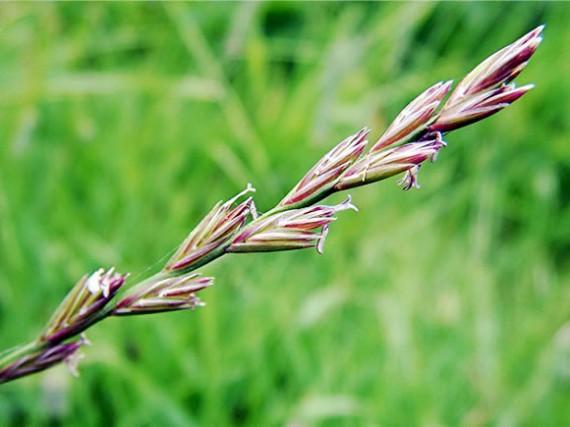 Perennial ryegrass
Perennial ryegrass
PRG is the basis for most improved or semi-improved pasture. There has been a lot of research and plant breeding invested in developing today’s varieties. PRG has many positive attributes:
- High output and quality
- High palatability
- Long growing season
- Can withstand hard grazing
- Has good disease resistance
- Responsive to nitrogen
However, it also has its negatives:
- Has shallow root system, which leads to
- Poor drought resistance / mid season drop in production and
- Variable persistency and
- Some winter kill
- Needs high nitrogen inputs
- Poor tolerance of acid soils
Italian Ryegrass (IRG)
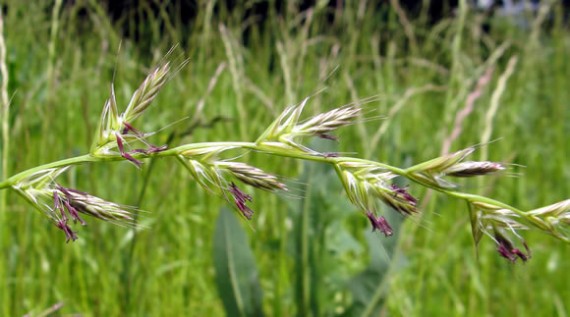 Italian ryegrass
Italian ryegrass
IRG is really only suitable for short-term leys.
Positive characteristics of Italian Ryegrass:
- Establishes rapidly
- Responds to / requires high nitrogen
- High output and quality
- Early spring growth
- Late heading – remember, when the seed head forms, production and quality drop.
Negative characteristics:
- Biennial
- Prone to winter kill
- Poor tolerance of acid soils
- Poor disease resistance
- Poor tolerance of hard cutting and grazing
Hybrid ryegrasses
IRG x PRG – have been developed to produce grasses with:
- High yield and quality
- High energy
- High D value
- Persistence
- Early growth
- Good disease resistance
While the ryegrasses will form the basis of a grass seed mix, other grass species may be added to bring their particular qualities.
Cocksfoot (Dactylis glomerata)
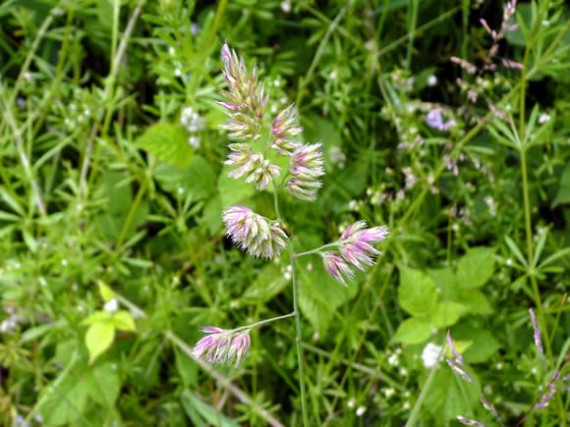 Cocksfoot
Cocksfoot
Cocksfoot is a versatile grass that will grow on soils ranging from light sand to wet clay. When used in combination with other grasses and clovers, it can make a wonderful sward.
Positive characteristics of Cocksfoot:
- Deep roots for drought resistance
- Early growing
- Good foggage grass
- Persistent so suitable for medium tem leys
- Requires low nitrogen input
Negative characteristics:
- Poor palatability
- Low D value
- Grows in clumps unless hard grazed
- Slow to establish
Timothy
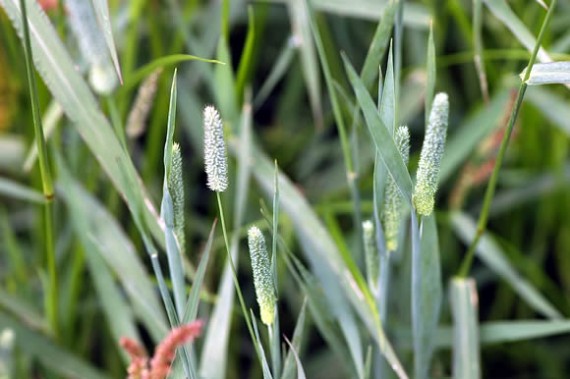 Timothy grass
Timothy grass
Timothy grass is named after Timothy Hanson, an American farmer who is thought to have introduced it from New England to the southern U.S. states in the early 18th century.
Positive characteristics of Timothy grass:
- Tolerates wet soil so
- High output on heavy soil but lower yielding on light soils
- High D Value
- Palatable
- Persistent in cold areas and winter hardy
Negative:
- Doesn’t tolerate hard grazing so tends to be used in hay mixes
Meadow fescue
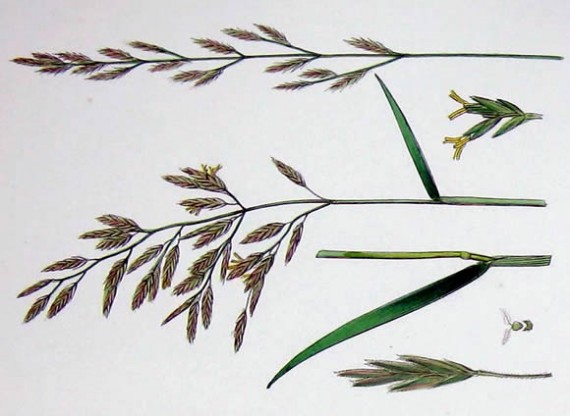 Meadow fescue
Meadow fescue
Meadow fescue is a very persistent grass. It does not require high temperatures for active growth, and is very winterhardy.
Pros:
- Palatable
- Flood tolerant
- Winter hardy
Cons:
- Difficult to establish
- Not persistent
Other species
There are many other species too:
- Crested dogtail, creeping bent, golden oat grass, meadow foxtail – all yield well in no nitrogen situations
- Rough meadow grass does well on moist soils
- Tall Fescue is drought resistant and high yielding
If you are planning to overseed, take time to look at different mixtures available and pick one that is suitable for your needs.
- Previous « Plants in grassland
- Next Clover »

About Rosemary Champion
Rosemary lives on a 12 acre smallholding in Angus, in the east of Scotland, where she keeps Ryeland Sheep, Shetland cattle and assorted poultry. She was destined to be a smallholder from an early age.
Further Reading
 Weed Management for Organic Farmers, Growers and Smallholders Gareth Davies |  Improved Grassland Management John Frame |










